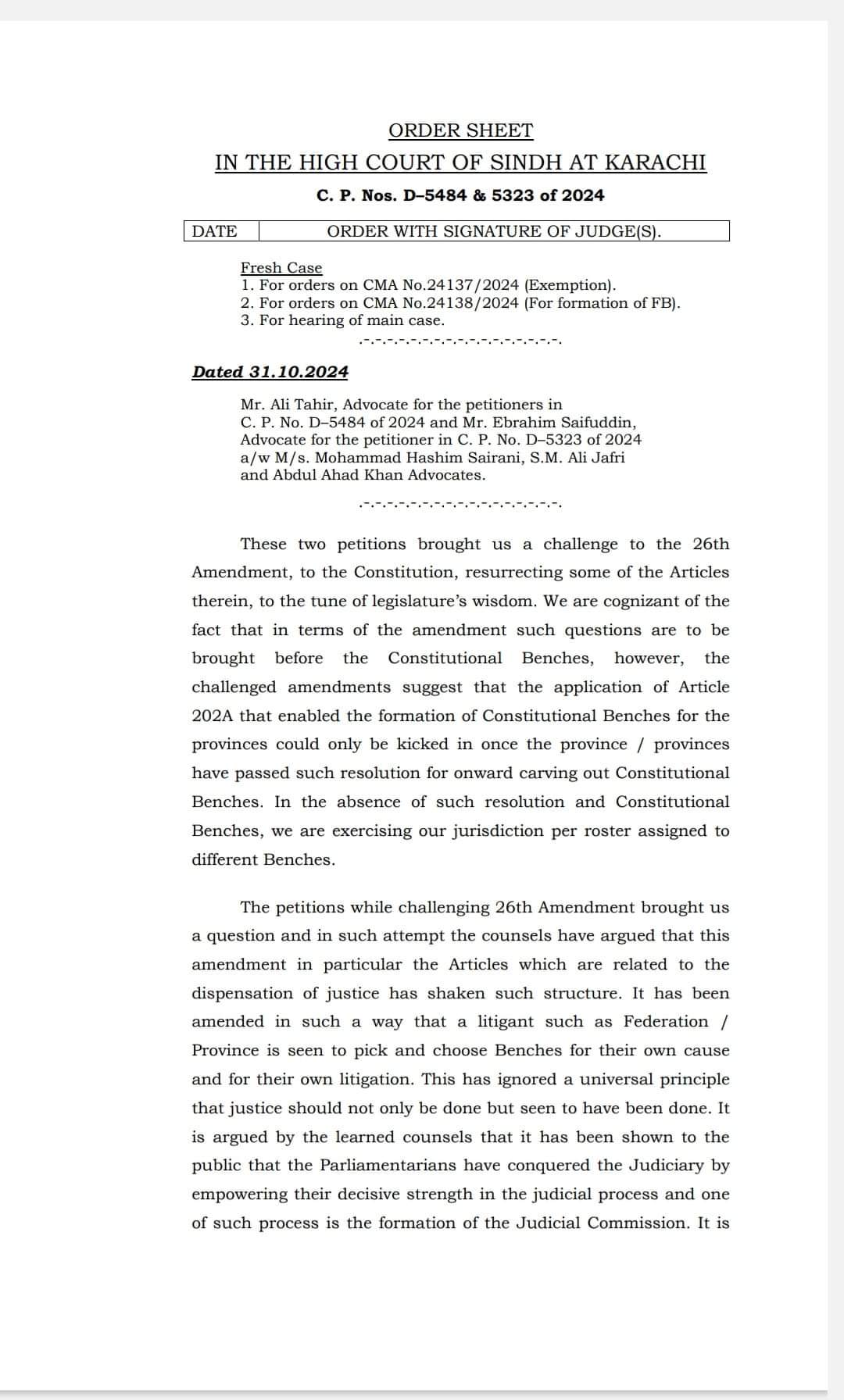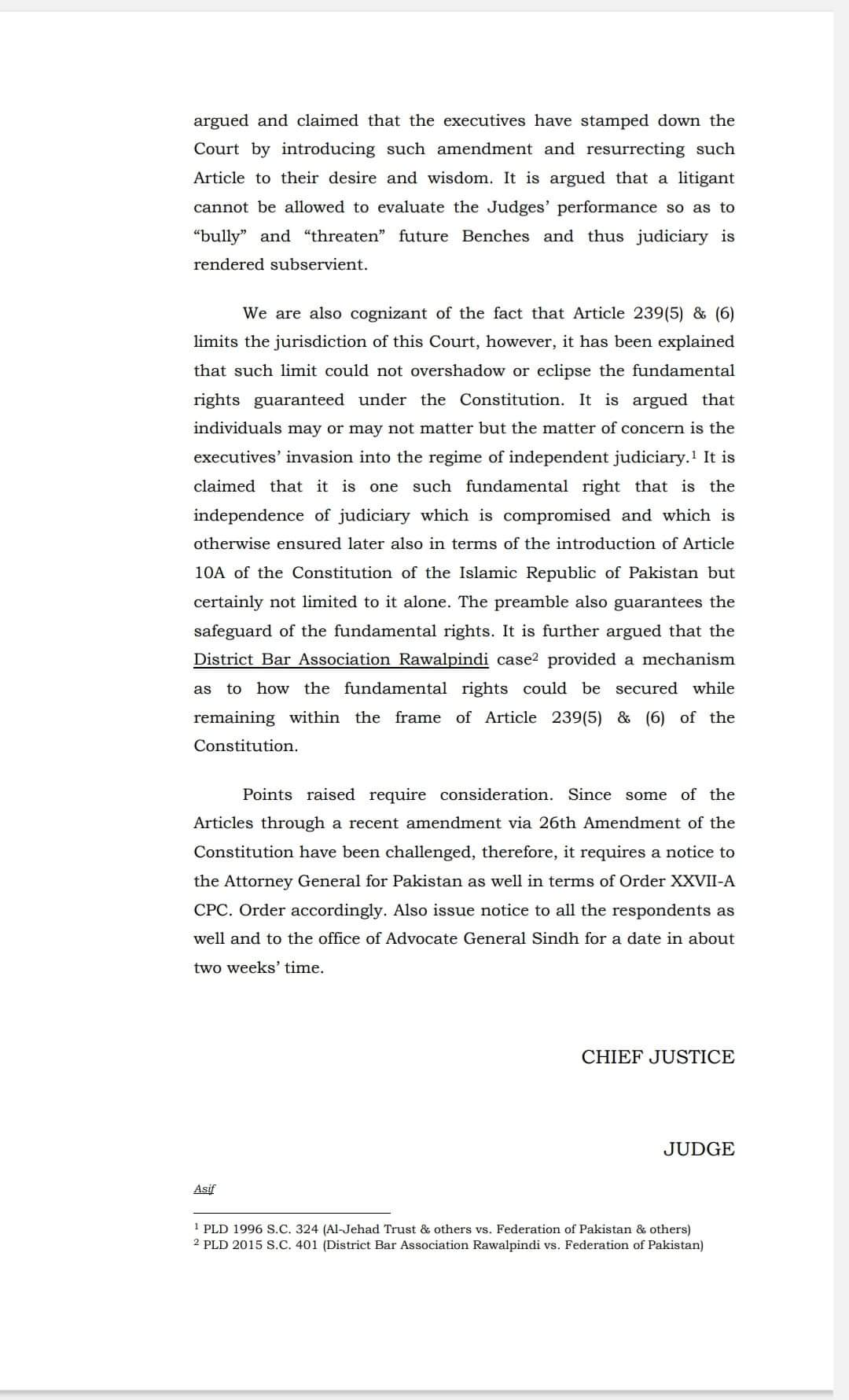Karachi — In a significant legal development, the Sindh High Court has accepted petitions challenging the recently enacted 26th Amendment to the Constitution of Pakistan. The petitions were filed by advocates Mr. Ali Tahir and Mr. Ebrahim Saifuddin, along with their colleagues.
The petitions argue that the 26th Amendment undermines the independence of the judiciary by allowing the executive to influence judicial processes. The petitioners contend that the amendment allows for selective formation of Constitutional Benches, thereby compromising the principle that justice must not only be done but must also be seen to be done.
The lawyers representing the petitioners highlighted concerns that the amendment empowers Parliamentarians to dictate judicial proceedings, suggesting a troubling trend where the legislature appears to have overstepped its bounds. They assert that this legislative power could lead to a scenario where litigants, particularly government entities, can “pick and choose” favorable benches for their cases, thereby jeopardizing judicial impartiality.
Furthermore, the petitioners invoked Articles 239(5) and (6), which delineate the jurisdictional limits of the court, arguing that these limits should not infringe upon the fundamental rights guaranteed by the Constitution, particularly the independence of the judiciary. The advocates referenced previous case law, notably the *District Bar Association Rawalpindi* case, to emphasize that fundamental rights can be safeguarded within constitutional limits.
The court acknowledged the points raised and ordered notices to be issued to the Attorney General for Pakistan, as well as to the respondents and the Advocate General of Sindh. The next hearing is scheduled for approximately two weeks from now.
The acceptance of these petitions marks a crucial moment in the ongoing discourse surrounding judicial independence and legislative authority in Pakistan, setting the stage for a deeper examination of the implications of the 26th Amendment.
Reported by
Azeem Akthar



